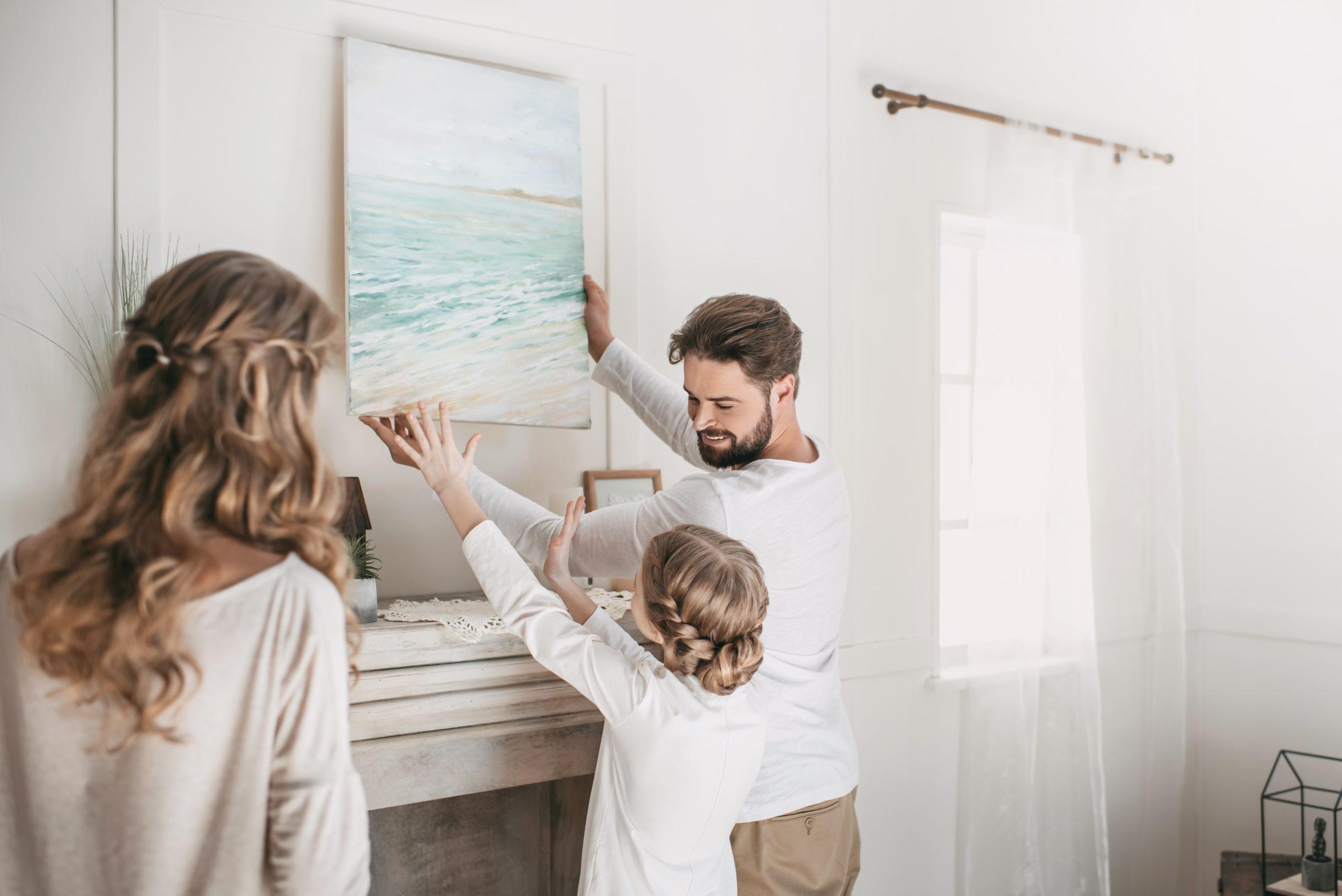
If you’re looking to add a touch of personality and style to your home, hanging a picture on the wall is an easy way to do it. But before you grab your hammer and nails, there are some tips that can help ensure that your pictures look perfect on the walls. In this guide, we’ll show you step-by-step how to hang a picture with precision so that your artwork looks amazing in its new home.
Choosing a Hanging Method
When it comes to picture hanging, there are many different methods you can use. You could opt for a simple nail and hook, or choose something more sophisticated like sawtooth hangers. There are also adhesive strips available that make picture-hanging as easy as peel-and-stick! If you’re looking to hang heavier items, consider using heavy duty hooks or even wire cables with eye screws.
Preparing Your Space for a Picture
When it comes to taking a great picture, the setting is just as important as your subject. Start by picking a space that will make for an interesting background and has good lighting. Arrange any furniture or decorations that are in the room if you want them included in the photo. Then get rid of anything that won’t be adding to the aesthetic like trash or cords, and finally sweep up any dust and dirt on the floor.
Measuring and Marking the Wall for a Picture
Measuring and marking the wall for a picture can be an intimidating task, but it doesn’t have to be. With a few simple materials and steps, you’ll soon be hanging your artwork like an expert. First, gather the necessary supplies: measuring tape or ruler, pencil or marker, level (optional), and painter’s tape. Measure the length of the artwork and mark that measurement on the wall with a pencil or marker. Make sure this is done accurately so your art hangs straight! If you’d like to use a level as an extra precautionary measure while measuring and marking your wall, do so before continuing onto hanging up your artwork.
Attaching the Frame to the Wall
Hanging a picture frame on the wall is an easy task that can be done with just a few basic tools. The first step is to choose a spot for the frame and mark it with a pencil or marker. Then, you’ll need to gather some supplies: screws, anchor points, screwdriver or drill and hammer. You may also need a leveler if your surface isn’t even. Once you have all of these in place, simply attach the anchor points into the wall and follow up by driving the screws into them using either your screwdriver or drill. Finally, use your leveler to ensure that everything is straight before hanging your picture frame!
Adjustments and Final Touches to the Frame
Once you have the picture frame constructed, it is time to make some adjustments and give it a final touch. You’ll want to check that each corner is square and aligned properly. If there are any gaps between the joints, use wood filler to cover them up. Also, sand all edges of your frame with fine-grit sandpaper if they feel rough or uneven. Lastly, apply a coat of paint or varnish as desired for a polished look!
Safety Tips for Avoiding Damage to Walls & Pictures
When hanging pictures or wall decor, it is important to take into consideration the potential damage that could be done. The key here is to use proper tools and techniques when mounting items on the walls of your home. Use a level to make sure your art and photos are hung straight, as well as stud finders to locate wall studs so you can properly mount shelves and other heavier objects. Additionally, if you need to hang something that requires nails or screws in drywall, consider using hollow-wall anchors instead for additional support.
Maintenance of Framed Photographs
Framed photographs can be treasured keepsakes, and maintaining them properly is key to ensuring their longevity. To keep your photos looking good as new, start by wiping the frame with a dry cloth before dusting it off regularly. You should also check for any signs of damage or discoloration that may have occurred over time. Additionally, it’s important to ensure that your framed photograph is kept away from direct sunlight and heat sources which could cause fading or yellowing in the image. Finally, make sure you use archival-quality materials and acid-free mounts when framing pictures so they last longer without deteriorating.

Originally posted 2022-12-04 11:47:29.
